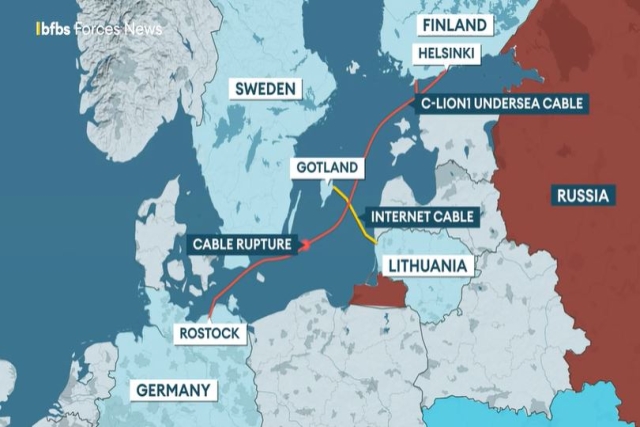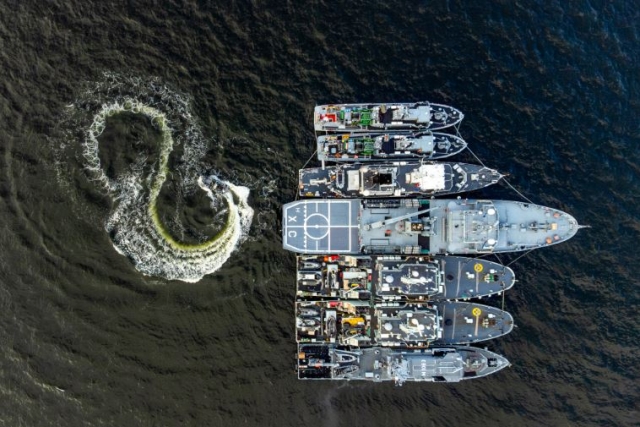Russia, China Accused of Using Merchant Vessels to Sabotage Baltic Sea Telecom Cables
Experts warn of escalating risks in grey zone warfare after severing of key undersea telecom links.

Russia and China are accused of using merchant vessels to sabotage two key undersea communications cables in the Baltic Sea.
"We can say all we want that we know, or we suspect, that Russia and China, or both, were linked to it, but officially, it's just a merchant vessel,” defense expert Elizabeth Braw was quoted as saying by Forces News.
One of the damaged cables connected Finland to Germany, heightening concerns about the security of critical infrastructure in the region. This recalls other malicious incidents, such as the Nord Stream gas pipelines and other undersea cables damaged last year.
Braw described the incident as an example of grey zone warfare, where the attackers used civilian vessels to carry out what could be considered military actions. This method complicates responses, as such activities do not directly involve military forces, making retaliation more difficult.
"Clearly, Russia has an interest in destabilizing the Baltic Sea region using non-military means…. If Russia used military means, it would face NATO’s collective response, but this way, it can destabilize the region without facing direct military consequences,” Braw explained.
While the damage is suspected to involve both Russia and China, there is no official confirmation of their involvement, with reports citing a civilian vessel. Braw emphasized that ignoring these kinds of incidents could lead to more frequent attacks, but responding may provoke further escalation from the two countries.
The vulnerability of undersea cables, essential for global internet connectivity, is highlighted by the attack. Although satellite communications are an alternative, Braw noted that they are more expensive and just as susceptible to potential aggression.











